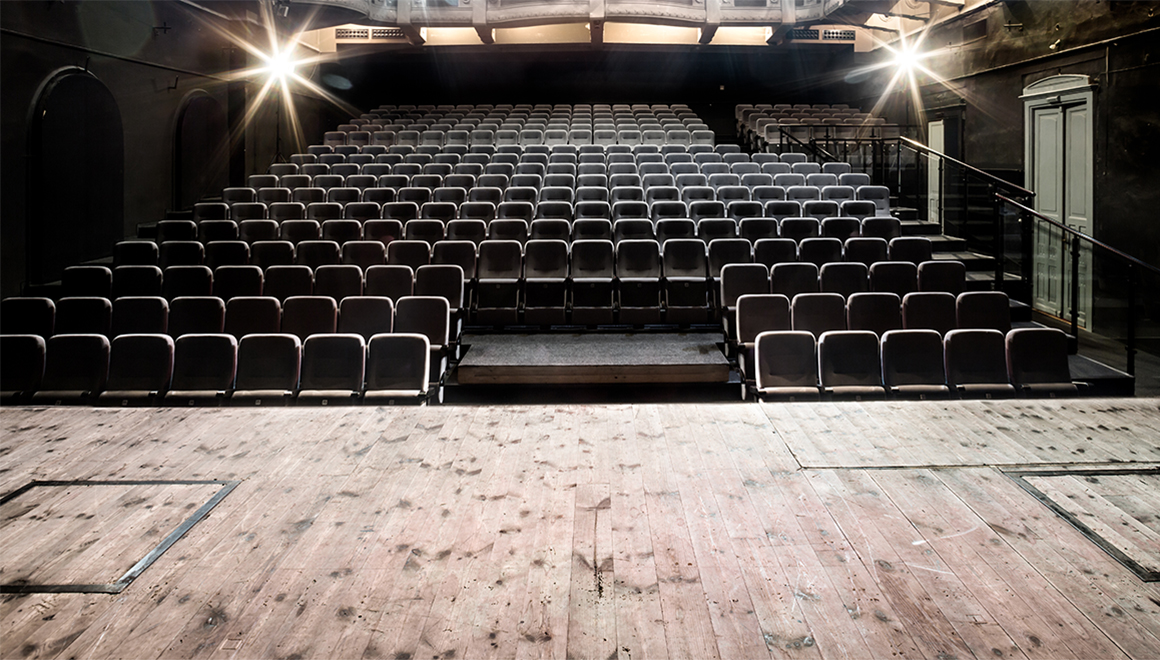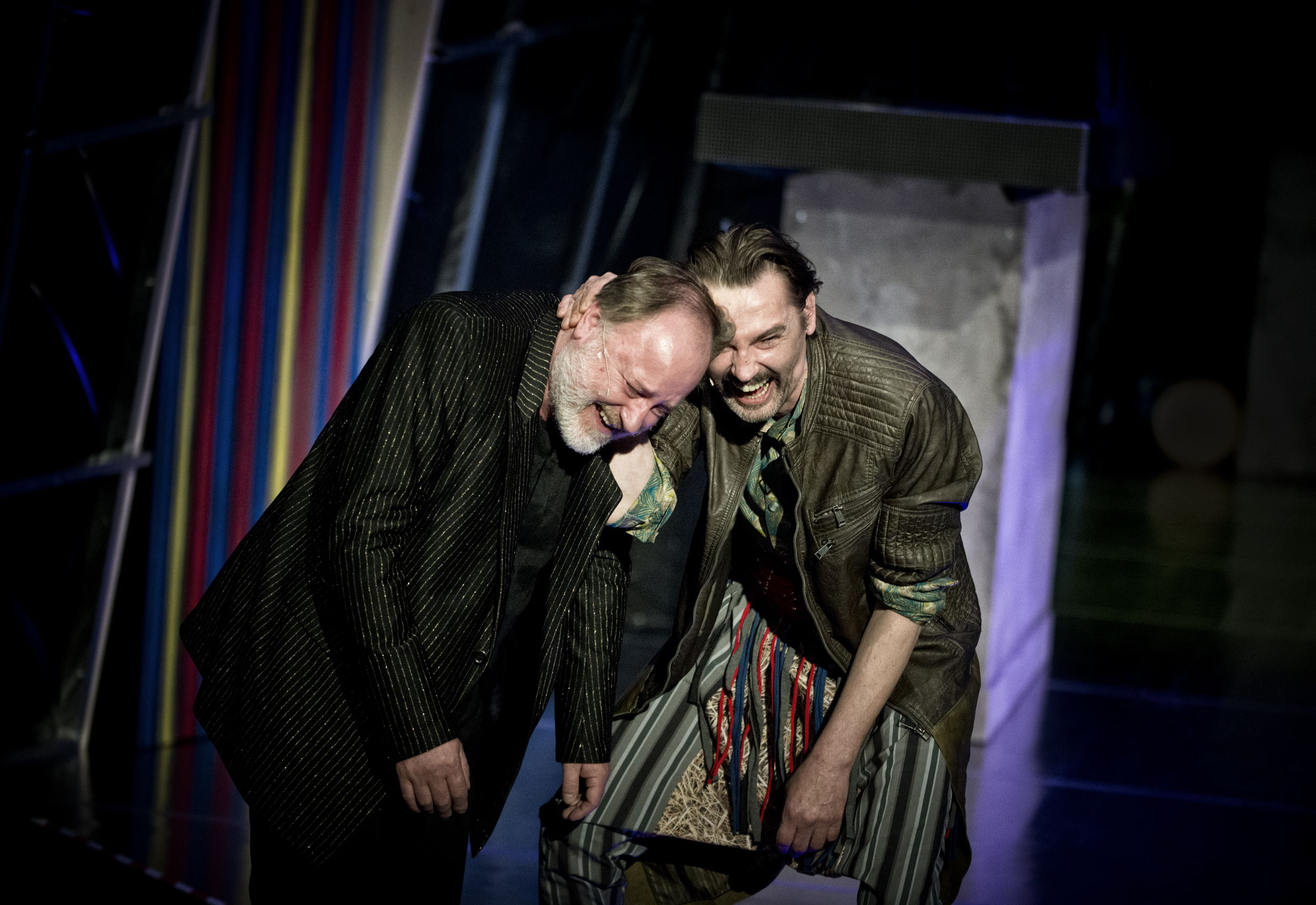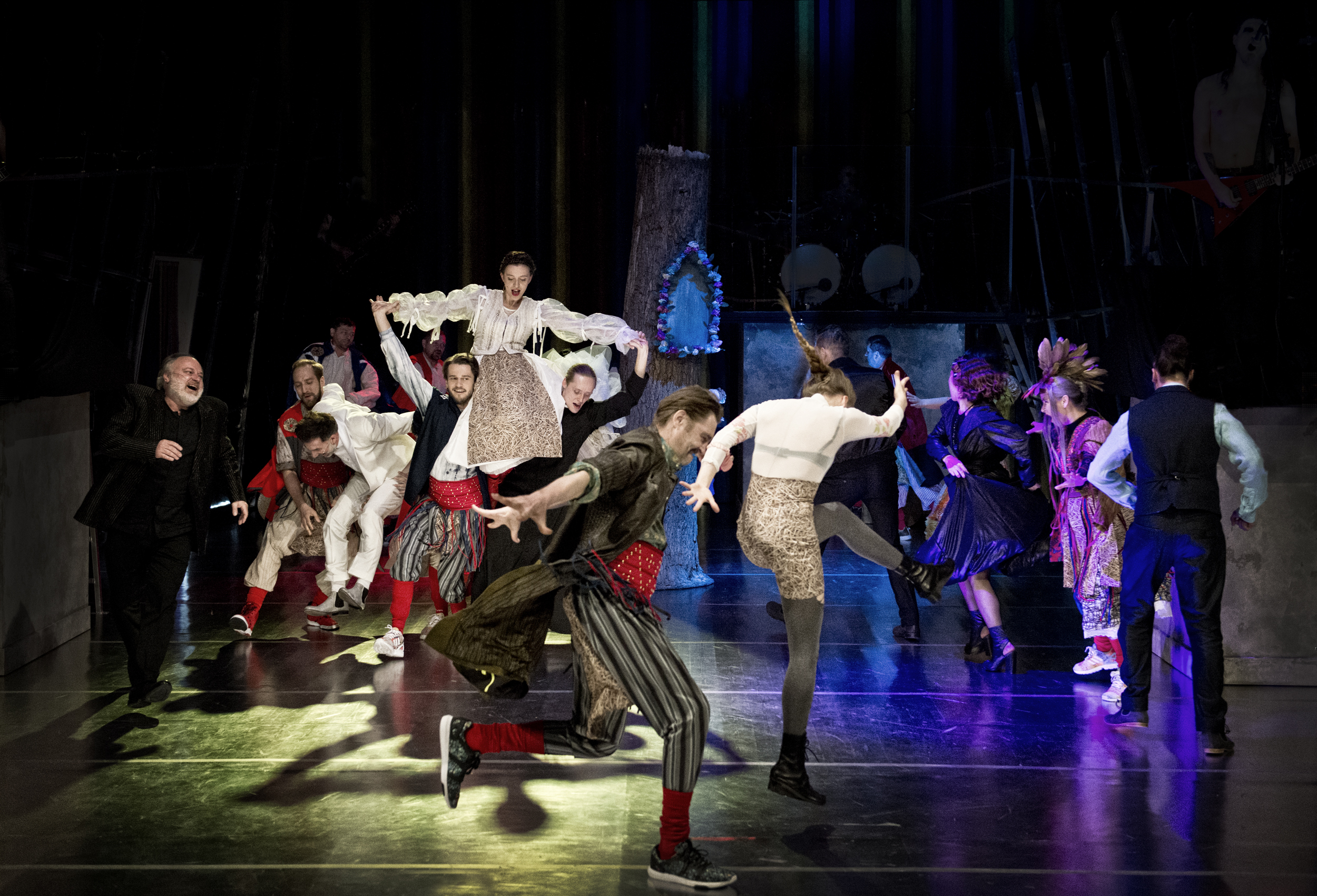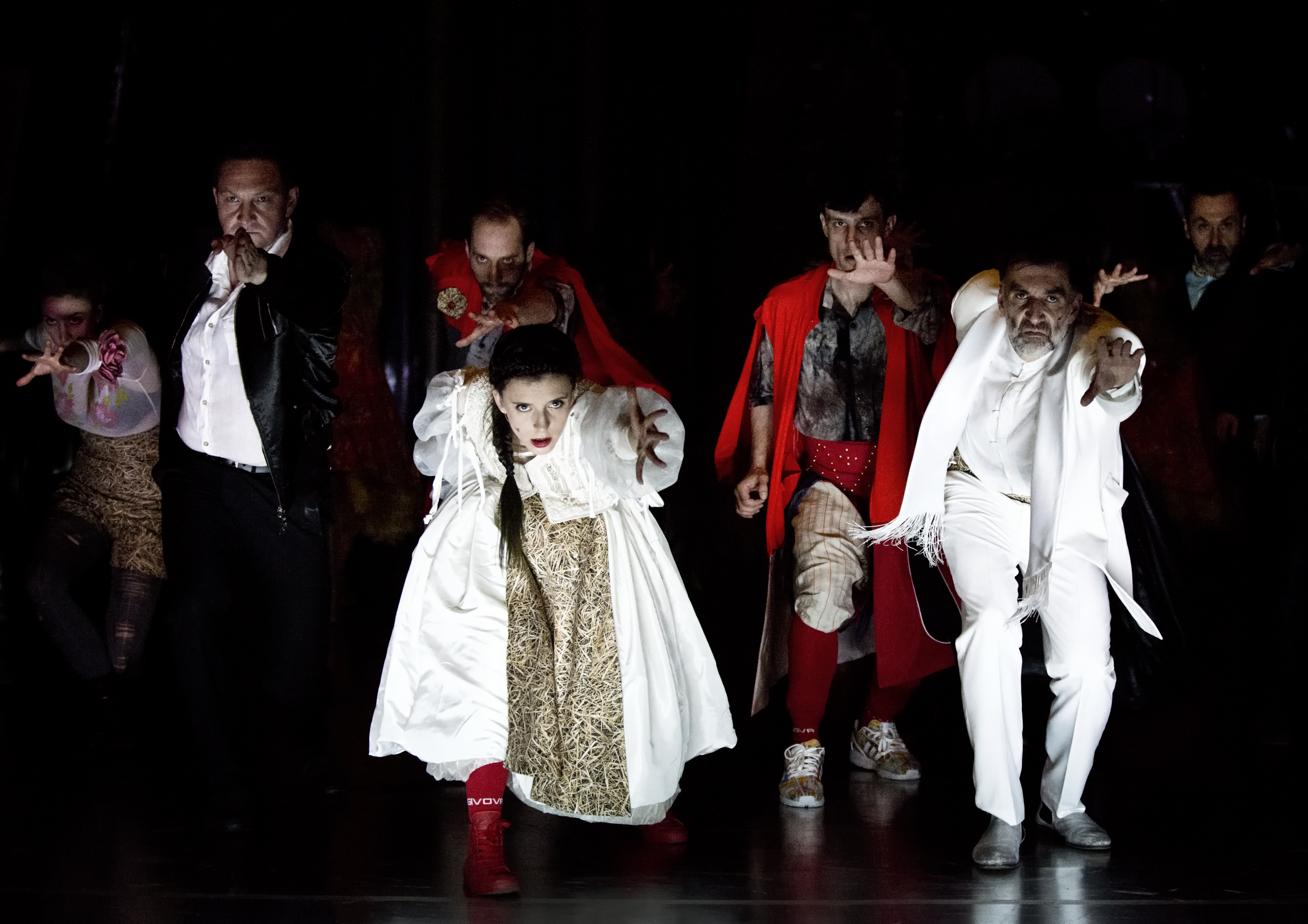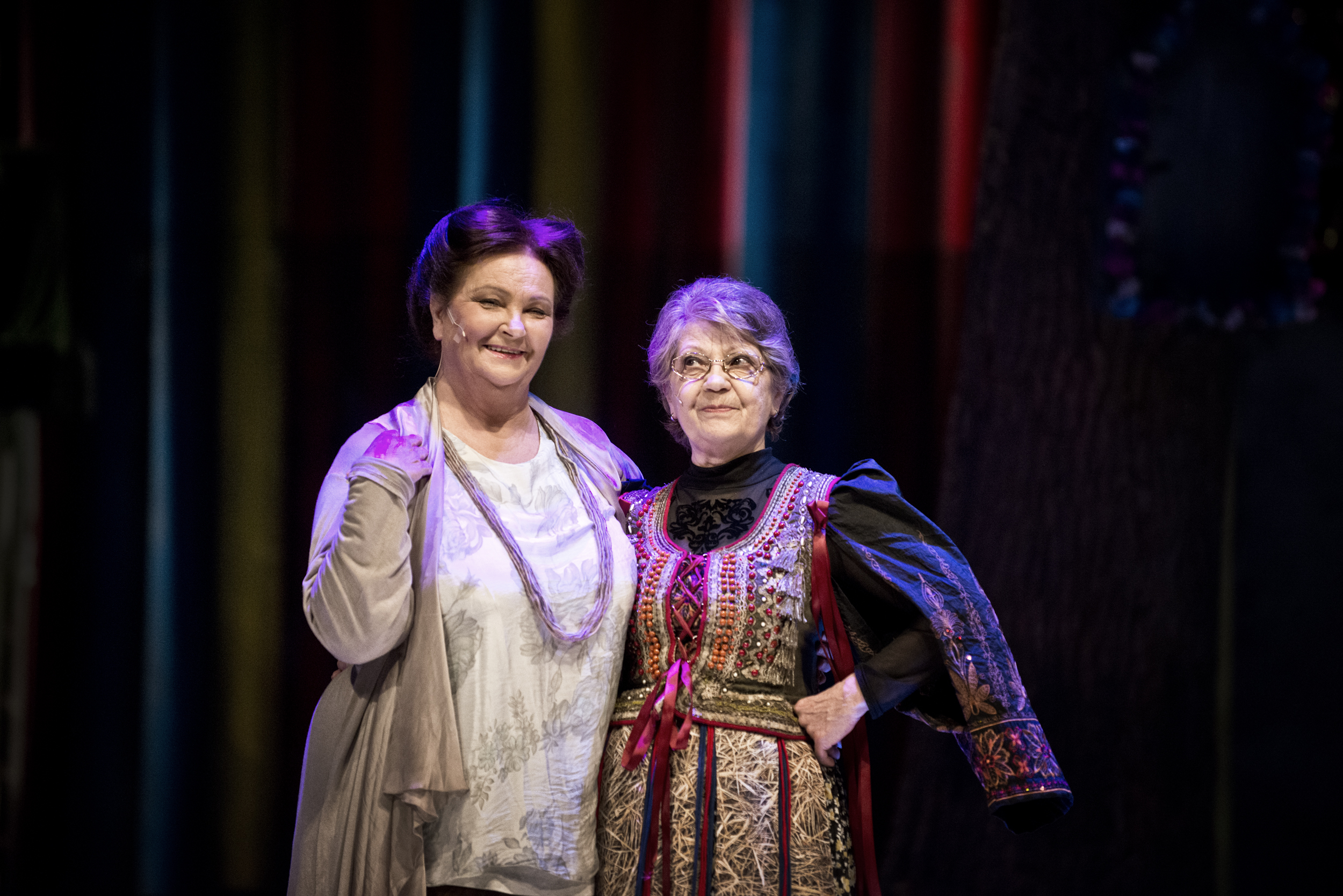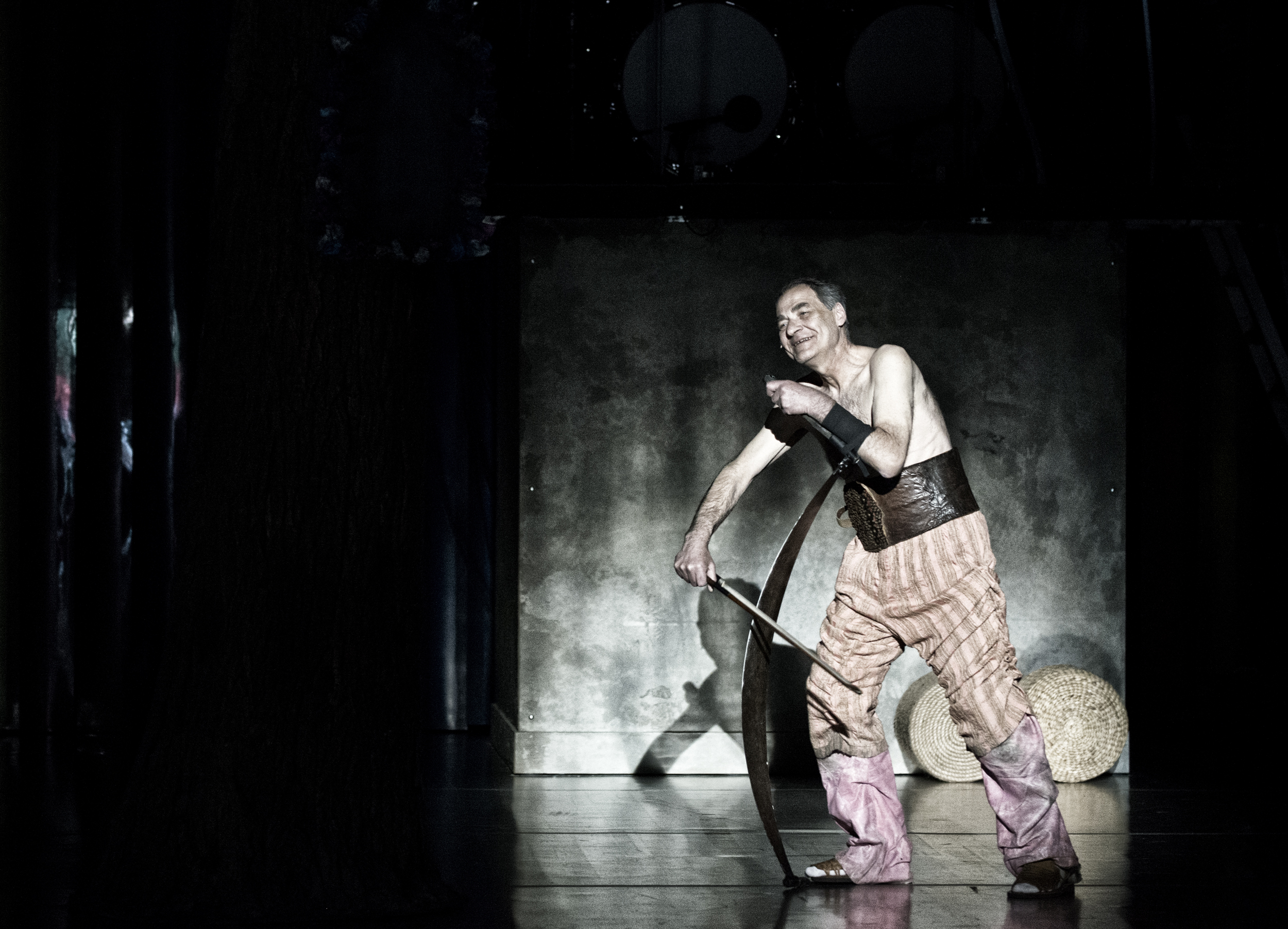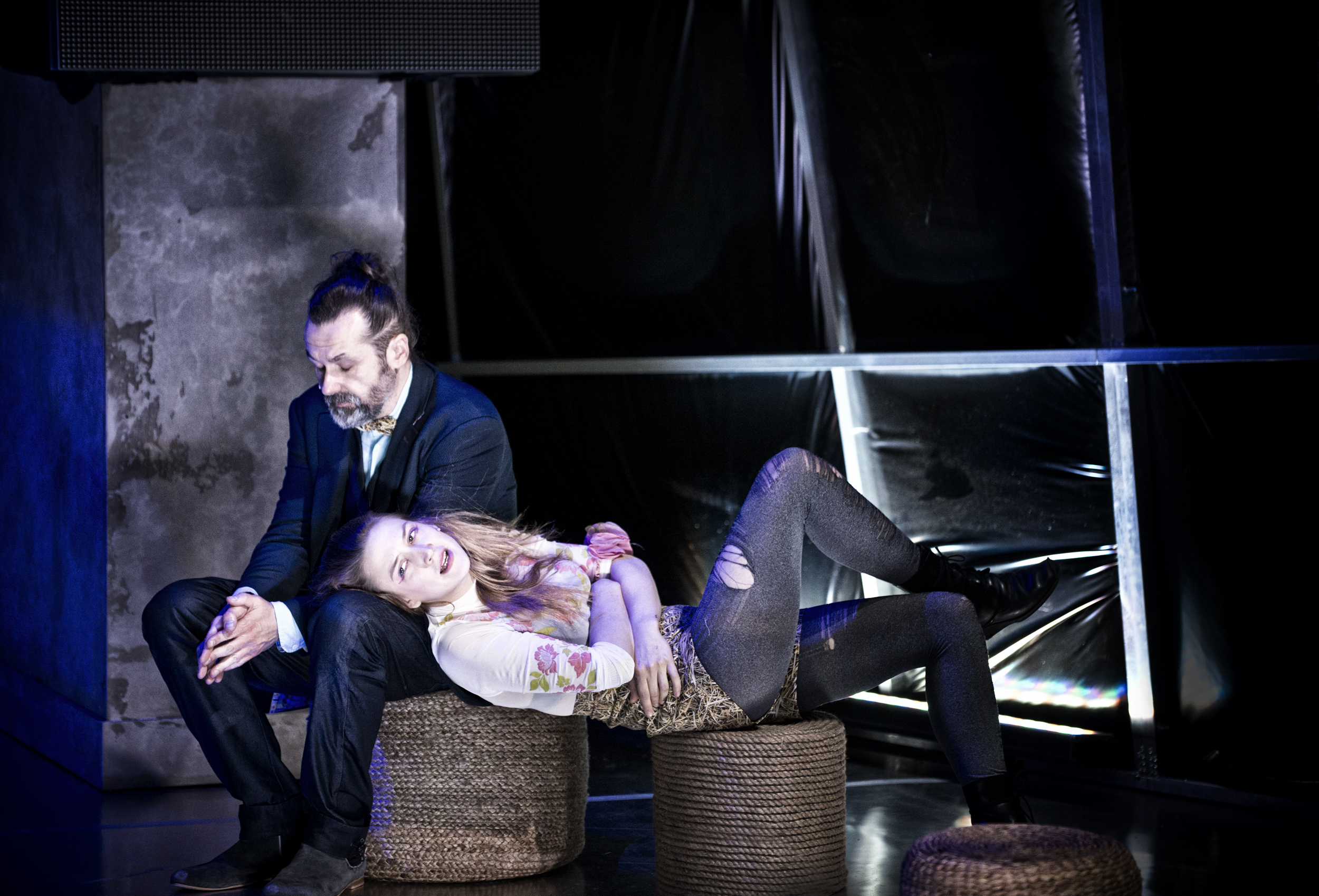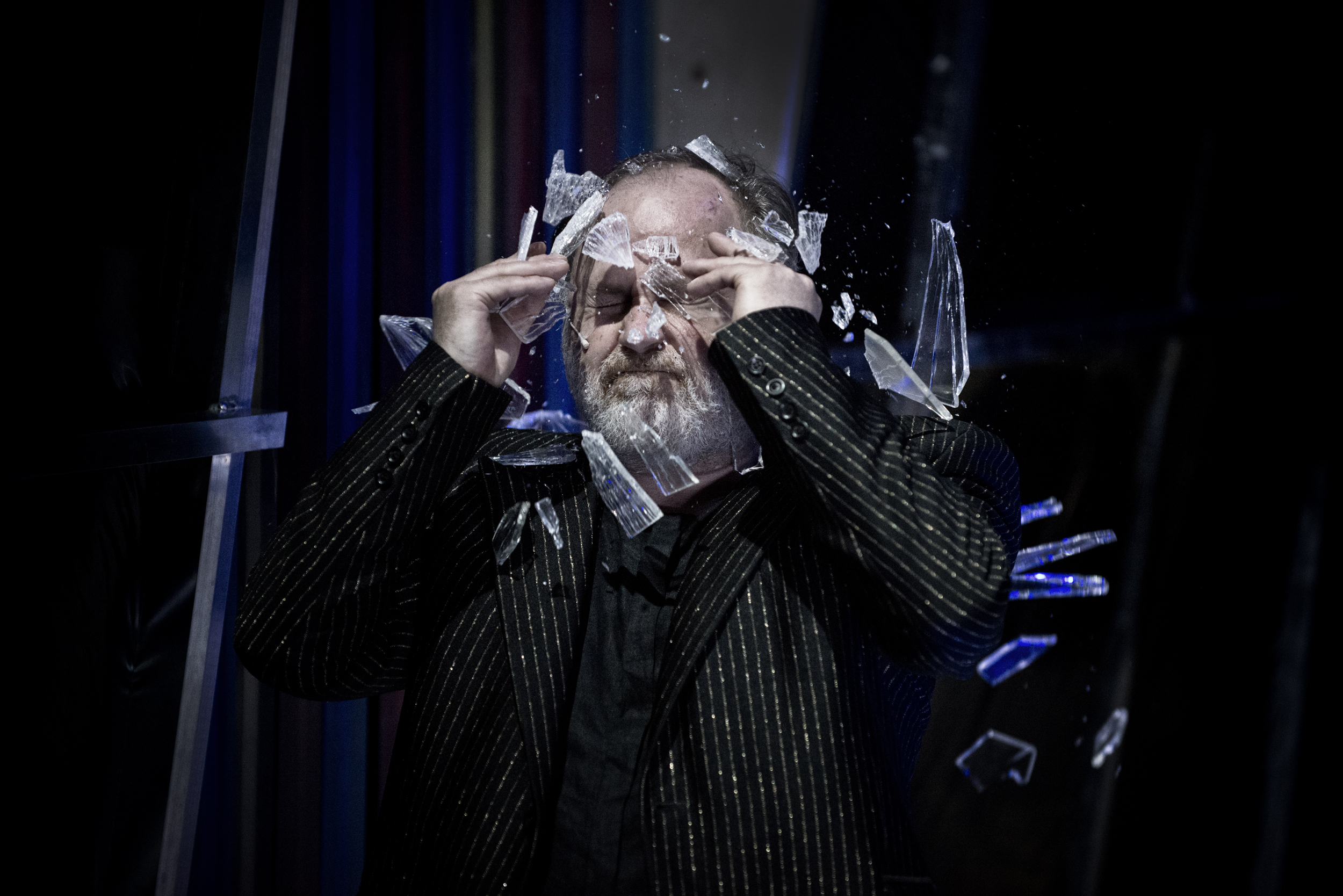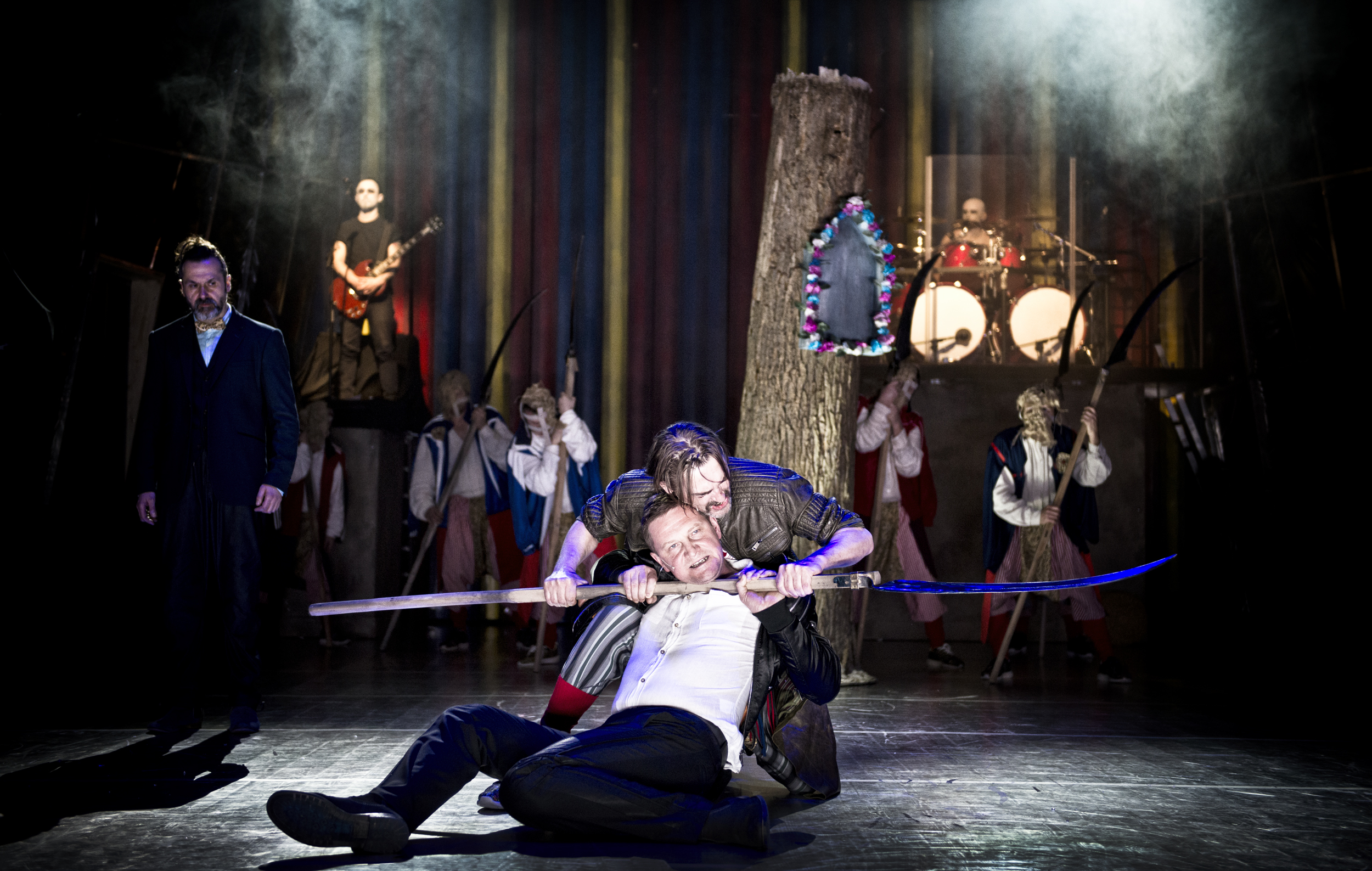Actors
Actors
Ryszard Łukowski
Graduate of the Acting Faculty of the Ludwik Solski State Theatre School in Krakow (1977)
A reflective and intellectually disciplined actor, spare in his means of expression, self-effacing and distanced, he personifies the “Krakow school of acting” in its most beautiful understanding—teamwork that prioritises the common goal and humility toward the audience.
At the Stary Theatre, Ryszard Łukowski made his debut as Cyprian in “Iwona, Princess of Burgundy” (1978) directed by Krystian Lupa. He proved himself on this stage in a highly diverse repertoire, under other outstanding directors—Wajda, Jarocki, Bradecki—his roles contrasting an external surface warmth with an inner mystery, of menacing irony. Andrzej Wajda tasked him with roles in ten of his performances: beginning with the touchingly Cracovian, humorous role of the versifying Policeman in “With the Passing of Years, with the Passing of Days…,” through roles in various stagings of “Hamlet,” Koch in “Crime and Punishment” (based on Dostoevsky’s novel), and the Ghost in “The Wedding,” he shone in a farce convention as Tardiveau in Labiche’s “The Straw Hat,” and as Coryphaeus, one of the most beautiful roles in Sophocles’ “Antigone,” the “leader and commentator on the rebellion,” using the remarkable timbre of his voice to give rhythm and expression to the Chorus of Thebans in “workers’ helmets.”
He crossed paths with Krystian Lupa once more in the role of Antinous in Wyspiański’s “The Return of Odysseus,” giving a special treatment of the character of Cynga—a spy, conspirator, and cult leader, lost and outwardly “soft,” balancing the form and psychological depth of the protagonist in Witkiewicz’s “Nameless Work.” In the colourful, fairy-tale character of Theseus in “A Midsummer Night’s Dream” directed by Rudolf Zioło he showed a splendid sense of form in a modern approach to the classical comedy. He made a touching duo with Anna Dymna in the small-scale production of Gennady Mamlin’s “Bells,” his Khmarov joining a male brutality with sensitivity and delicacy. He entertained as the Stranger in Marian Hemar’s comedy “The Square Root of Minus One” directed by Agnieszka Mandat. His roles in symbolic, poetic productions by Marek Fiedor—The Father of the Groom, the Dovre-Master (Ibsen’s “Peer Gynt”) and the Commander (“Don Juan” based on the director’s own script)—showed the actor’s openness to a diverse range of theatrical forms.
Contact with directors of the younger generation has been vital to this actor’s work: Gerdmann in Villqist’s “Phantom” directed by Agnieszka Lipiec-Wróblewska, Jonathan in Ravenhill’s “Polaroids” directed by Michał Kotański, the Tie-maker Sam Regan in the interstellar world of Philip K. Dick’s “Three Stigmata of Palmer Eldritch,” directed by Jan Klata, and the Old Man/Ghost in the same director’s outstanding production of “The Wedding,” and Menelaus in a subversive interpretation of “Dismissal of the Greek Envoys” by Jan Kochanowski, directed by Michał Zadara. Special attention should go to the character of the Father, shot through with the spirit of “new psychology,” seeking meaning and dignity, in Marek Hłasko’s “Eighth Day of the Week,” directed by Armin Petras, and a number of roles in Sylwia Chutnik and Patrycja Dołowa’s “Wanda”—conceived as a palimpsest whose plot is uncovered in consecutive layers, directed by Paweł Passini.
In the Theatre
In the repertoire
- The Wedding - Granddad / Spectre
